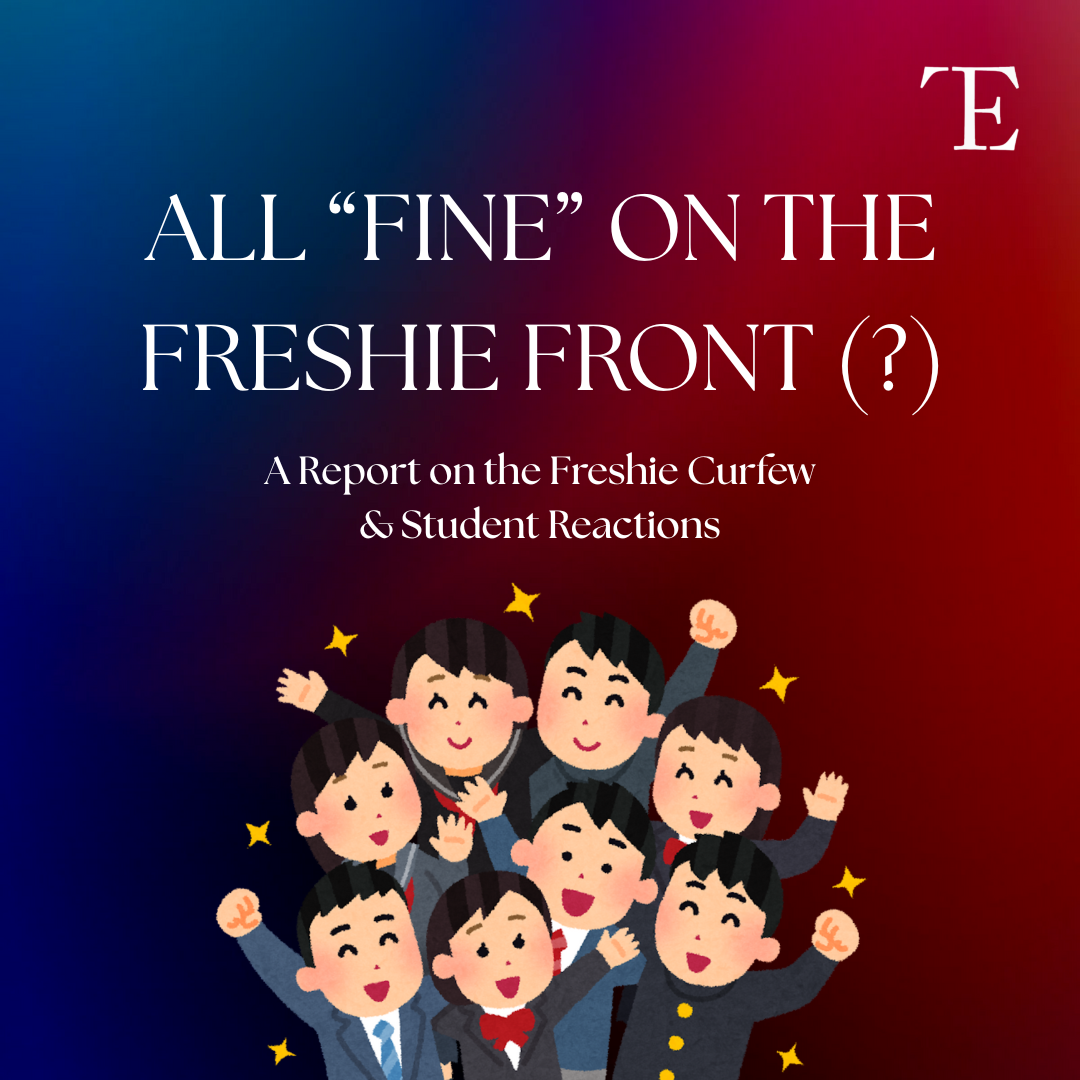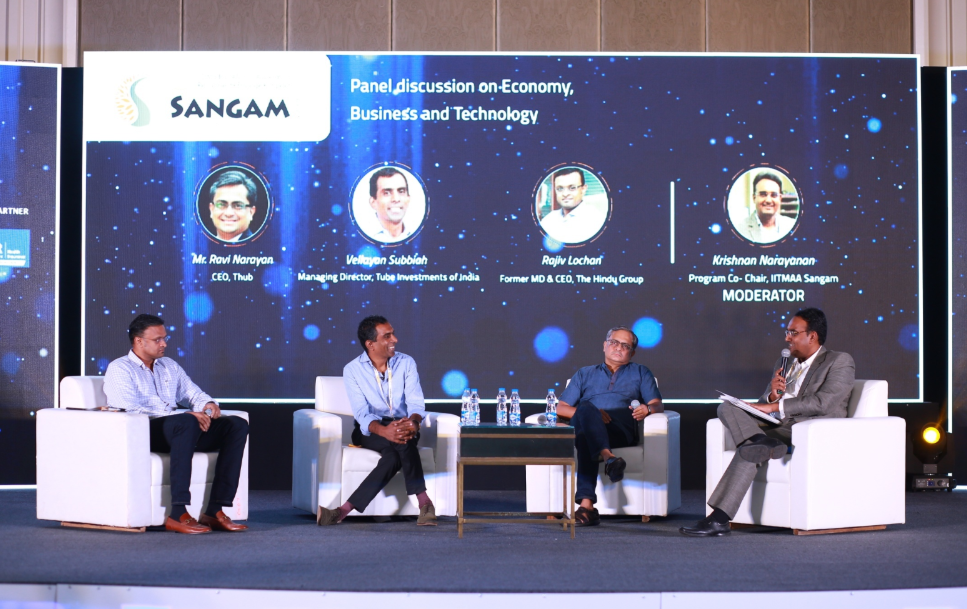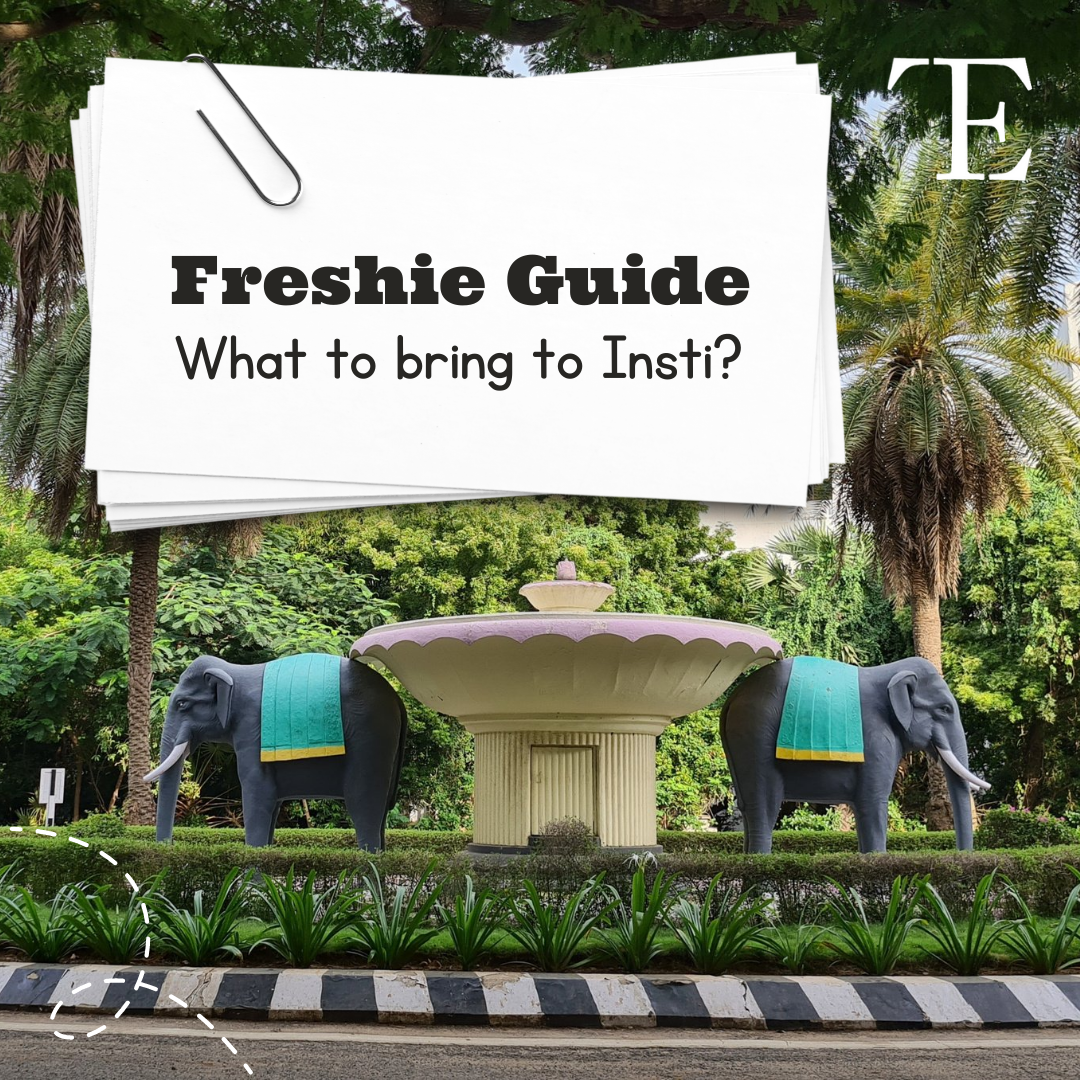Within just a few days of their arrival on campus, the freshers of the batch of 2025 learned of a curfew imposed as part of the administration’s initiative to curb ragging. Residents of both Mandakini and Swarnamukhi hostels were now required to return by 10 PM, with the rule set to remain in force until Quiz 1.
For Swarnamukhi residents, this was nothing new—the female freshers had faced the same curfew for years, often to much complaint. While a similar curfew technically existed on paper for Mandakini as well, it had never been actively enforced, creating a gendered imbalance in campus life.
That changed abruptly earlier this week, when, on 11 August 2025, the administration issued a formal notice introducing fines for curfew violations. The announcement cited a sharp increase in recent breaches of the rule among Mandakini residents as the reason for the crackdown.

This was, of course, not met with grace by the residents of Mandakini; a lot of them being Masters students felt they had been unjustly being punished for the crime of being allotted Mandakini, despite being relatively grown adults as compared to their undergraduate peers. The form of protest was similar to a form of non-cooperation, when a crowd assembled before the door 10 minutes before 10 PM, and cheered as people entered one by one after 10 PM, and kept asking the security if a fine would be imposed. The security responded by trying to lock the doors, causing more ruckus. This was finally dispersed by the arrival of the Warden, after which the M.Tech students proceeded to have a chat with the Warden over the situation. This was followed by a message sent on the Mandakini requesting co-operation.
Have Curfews Really Helped?
At the outset, it is important to address the fact that while ragging incidents have gone down since the introduction of Mandakini and Swarnamukhi as designated freshers hostels, incidents of what can be called ragging definitely remain. The admin’s argument in this regard is that this policy ends up becoming a preventive mechanism to prevent any unhealthy interaction that might tarnish a freshie’s feeling of safety within a campus.
There are, however, a few caveats to this measure though. As far as the admin claims, the worst of ragging exclusively happens after 10 PM; according to unconfirmed sources, it seems the patterns of ragging have still continued, despite this measure aimed at preventing ragging. Perpetrators definitely have capabilities of doing this before 10 PM, so the door remains open for such activity.
I think, on that note, it is important to analyze why, if at all, ragging happens on campus. I think ragging particularly happens when freshies wish to acquaint themselves with seniors, especially those coming from a similar linguistic background, and end up putting themselves in these situations that they cannot get out of. What the administration has to realize is that freshies do have urges to know their seniors, or, in general, explore the campus at night, as batches before them have discovered the joys of cycling on campus at night, or simply hanging out with their friends in legitimate ways outside their hostels. Instead of trying to deny these urges, and provide solutions that are best heuristic approximators of ragging activity and at worst measures that neither prevent ragging while at the same actively disable the urges of exploration a freshie feels to feel at home on the campus in their own ways.
Can Freshie Curfews Go Away for Good?
At this juncture, it is also important to address what legitimate means may exist to satisfy the freshie need to socialize with their seniors. I don’t think the admin can carte-blanche claim that any and all interaction with seniors is bad, since friendships between seniors and juniors do enable and create a sense of community for any student within IIT Madras.
What the curfew does definitely also curb are the legitimate, institutionalized and regulated means of interactions that senior batches have with freshers – by the means of PoRs and clubs. With the advent of Recreational Courses/NSO/NSS as a lower bound, mess timings and the eventual night time curfew, the operating conditions for clubs to meaningfully engage with freshie audiences ends up becoming restricted. The reason this becomes important is that these interactions, happening within the safe environments of classrooms with security guards not far away in any circumstance, are self-regulatory. These are also mechanisms for freshies to find community amongst seniors- the same things that trap them towards incidents of ragging. Lastly, they also provide grounds where freshies get to know each other in bounds, and are often means to meet people with shared interests that you would not automatically meet within the setting of a classroom or hostel wings, all of which are extremely important for the feeling of community a freshie ends up feeling on campus. With accountability, of course.
If the admin truly wants to end the vicious cycle of ragging, perhaps instead of curbing all interaction, they can look to strengthen the positive interactions and ideate on means on how to make them inclusive so that every freshie has a safe space to get know their seniors.




